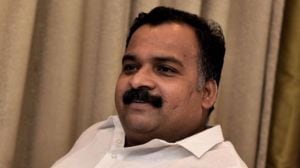National Knowledge Omission
There are usually two reasons why governments appoint commissions.

There are usually two reasons why governments appoint commissions. One, because they genuinely want to make changes and need information on how and what to do; and two, when they want to postpone necessary changes for as long as possible. It saddens me to report this week that the celebrated National Knowledge Commission, headed by the venerable Sam Pitroda, falls into the second category. This has been my view for some time now and it was confirmed last week when Pitroda made a comment in Ahmedabad that seemed to come from the depths of despair.
As reported in this newspaper, this is what Pitroda said: 8220;India, with her huge population of young people, can become the workforce of the world. All we need is rapid expansion and reforms in education. We have 370 universities when we need 1,500. Right now only ten per cent of our children get college education. More than 550 million young people are in need of education and the progress of the education sector in terms of opening more colleges and universities is not fast enough.8221;
If this is what the chairman of the knowledge commission is saying, then it is clear that neither the prime minister nor his boss is paying any attention to the dire straits in which the Indian education system now finds itself. Things are so bad that finding a place in an Indian college has become impossible for students who do not score impossibly high marks. We must be the only country in the world where a student can lose a college seat after scoring 90 per cent marks because the 8216;cut-off point8217; that year happens to be 97 per cent. The pressure is so overwhelming on both students and parents that when it comes to college admission time, the most centred people verge on nervous breakdowns.
We must also be one of the few countries in the world where schoolchildren kill themselves at exam time because the pressures of the system they work under are so murderous. If the end result was a fine education, it might still be alright, but usually it is children who master the art of learning by rote who make it to the top and not those who might have real imagination and intelligence.
It is a terrible situation that can only be remedied if the prime minister makes up his mind to relinquish state controls on the last bastion of the license-quota-permit raj. We need not just 1,500 universities but 1,500 IITs and 1,500 IIMs and 1,500 medical schools 8212; and that is just the beginning. We also need a million good schools in rural India and they would be built if the state withdrew from being a totalitarian controller to an honest regulator.
If this is so obvious, then why does it not happen? Because then politicians and bureaucrats of the old socialist kind would lose their powers of patronage and this is not something they like to do. An outstanding example of the old kind of politician is ironically the man in charge of Indian education, Arjun Singh. Last week, he made either the gaffe of all gaffes by announcing Rahul Gandhi8217;s name as our future prime minister or he deliberately let the cat out of the bag too early in the plot. Either way, he should have been kicked firmly out of the cabinet but he got away with a rap on the knuckles from Mama Sonia. What is this man8217;s secret? Why does he survive when all he has done in his tenure as minister of human resource development is make trouble?
As the Supreme Court proved with its recent ruling, there are no more than a handful of OBC other backward caste students who will end up benefiting from the 27 per cent quota. By putting any family earning more than Rs 2 lakh a year into that weirdly named category they call the 8216;creamy layer8217; and by including in this layer those students with parents in government service or with jobs in the public sector, the Supreme Court has narrowed things down to a very small window. Yet, if we were listing the Manmohan Singh government8217;s achievements in the area of education reform, the only thing we would come up with is the introduction of the 27 per cent quota.
Forgive me. It was this government that created the knowledge commission, so that is a point in its favour, but with only one year left to the next general election there is little chance that any of the recommendations will be implemented. This is a terrible tragedy for India, because if we continue to ignore the desperate need for reform in the education sector, we will end up missing the best opportunity we have had in decades to lift India out of illiteracy and poverty.
- 01
- 02
- 03
- 04
- 05































